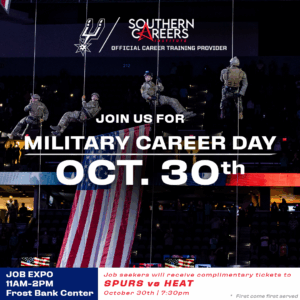What Do Structural Welders Do?
As a structural welder, you can use your skills to cut or repair columns, beams, girders, and supporting structure for heating, ventilation, and air conditioning (HVAC) projects.
Additionally, you’ll cut to size, position, and secure construction bars to reinforce concrete. A welder must also be good at repairing old infrastructure and carrying out welding activities in metal fabricating shops.
As a structural welder, you must know how to interpret blueprints, use cutting and welding tools, have a spatial understanding of your surroundings, and have a basic knowledge of math to help you measure, cut, and join metals.
What Welding Techniques Do Structural Welders Use?
The most common techniques employers by structural welders include:
- Stick/Shielded Metal Arc Welding (SMAW)
This technique uses a consumable electrode core wire that passes electric current covered in flux. When a metal is encountered, the gap creates an electric arc that generates temperatures up to 6500 °F, melting the electrode and metal. The method is effective against rusty metals but requires plenty of skill and experience when dealing with thin metals. - Metal Inert Gas (MIG) Welding (GMAW)
This method also uses a consumable electrode, instead using a gun with an external gas to shield the welded metal from the environment. It is an easy method, requires less heat, uses the electrode efficiently, and produces fewer fumes. However, it requires an external shielding gas, and it doesn’t work correctly on thick metals. - Tungsten Inert Gas (TIG) Welding (GTAW)
This technique requires high-level skill as a lot of concentration is needed and may also be time-consuming. Using this method, a weld is created by melting two metal pieces without filler metal, leading to thin, high-quality welds free from splatter. The technique works best in high precision welding jobs like in aerospace or vehicle manufacture and doesn’t work on dirty or rusty material. - Flux Core Arc Welding
Instead of the solid wire used in SMAW, this method uses a wire-filled flux. It can self-shield, or you can create a dual shield using an external gas. Moreover, flux core arc works best when welding heavy materials or repairs.
How Much do Structural Welders Make in Texas?
The average hourly rate for structural welding jobs in Texas was $19.53 in 2019. More than two-thirds of the welders say the pay is enough to sustain the cost of living in their area. If you hone your skill and get plenty of experience, you stand to earn as much as $54 per hour in most structural welding jobs in Texas, which translates to $112,550 annually.
What is the Career Outlook for Structural Welders?
As the country’s infrastructure ages, the U.S. Bureau of Labor Statistics projects that welding jobs will grow at a rate of 3 percent from 2019 to 2029. If you want a competitive advantage, receive training in all the latest welding technologies, and consider receiving a National Center for Construction Education and Research (NCCER) certification.
Welding is required in all types of manufacturing and construction. Highly-skilled and trained welders are needed all over Texas, and the demand for welders continues in industries like aerospace, construction, power, oil, and more.
Learn more about how you can complete the SCI welding training program at our Austin, Corpus Christi, Harlingen, Pharr, San Antonio – North, and Waco campuses in as little as seven months.










